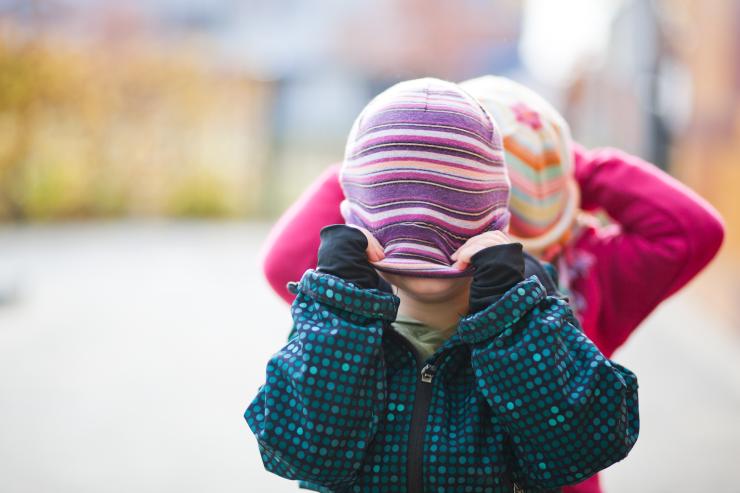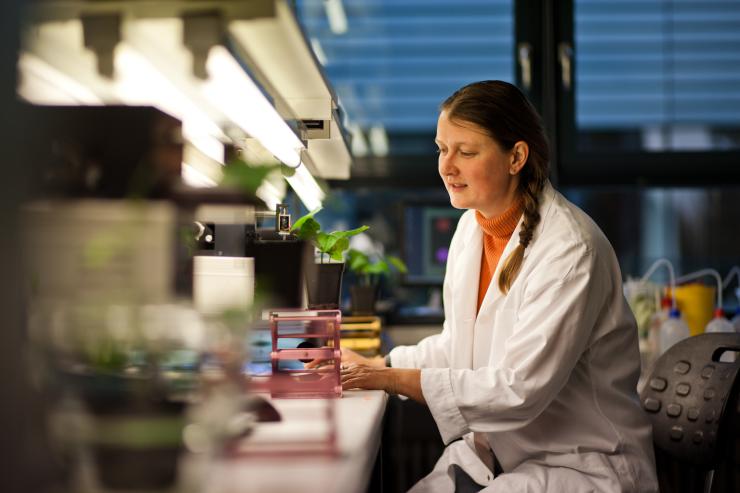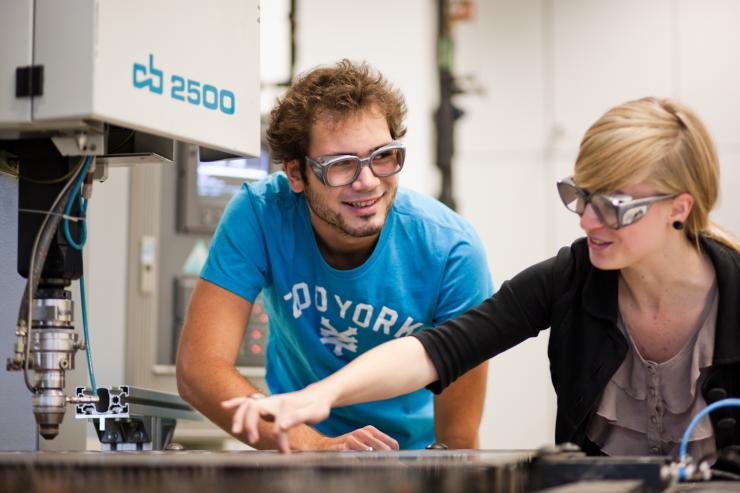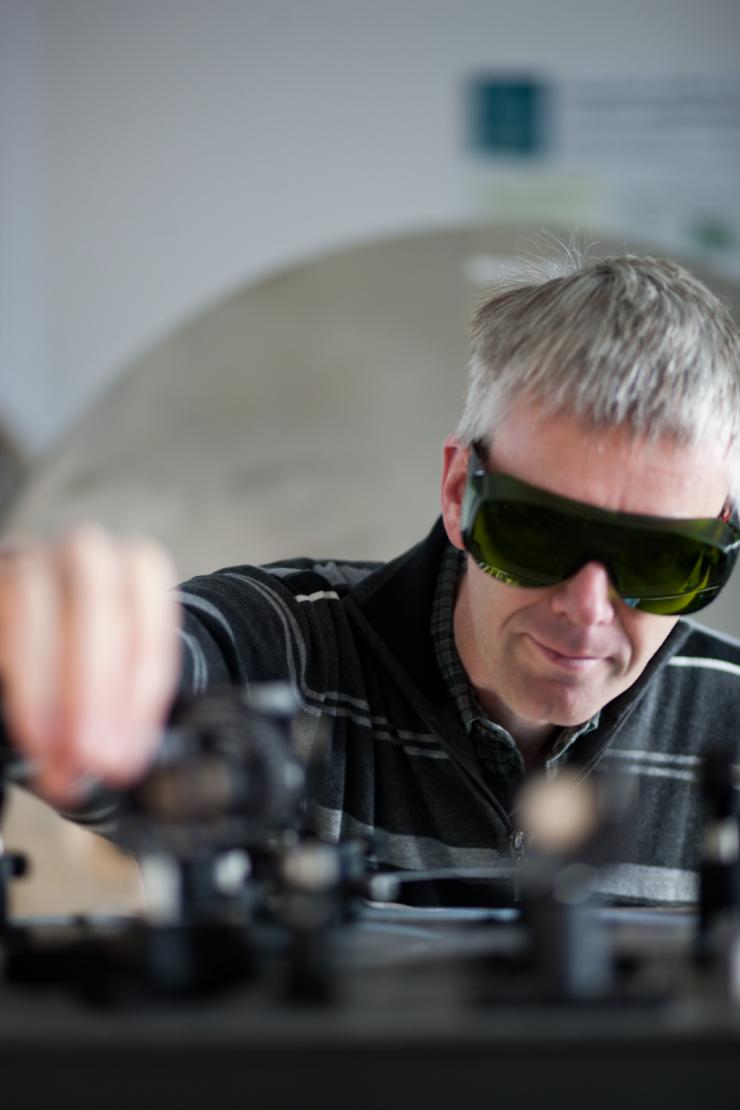
Equality
Men and women have equal rights. The state promotes the actual implementation of equal rights for women and men and works towards the elimination of existing disadvantages (Basic Law Art. 3 Para. 2).
Gleichstellung - Eine Aufgabe der Kommune
Realization of equal rights in Jena:
- Support for people seeking advice on gender equality issues
- Lobbying against discrimination based on gender or sexual orientation
- Initiatives and campaigns for the practical implementation of equal opportunities
- Promotion, coordination and support of gender projects and initiatives
- Promoting the compatibility of family and career
Familienpolitik – Kinder haben Mütter und Väter
What reconciling family and career means for fathers and mothers
The man earns the money, the woman looks after the family and social affairs. This classic distribution of roles is also reflected in the usual confusion between women's and family policy. However, women also have a life outside the family - and children not only have a mother, but also a father.
Fewer disadvantages in working life
However, the compatibility of family and career is generally seen as a problem for working mothers. This reinforces the traditional and unfair distribution of paid and unpaid work - and stabilizes the disadvantages faced by women in working life.
More family-friendly working hours
Sufficient and qualified childcare facilities can reduce discrimination. The Women's and Equal Opportunities Office is committed to the increased expansion of crèches, kindergartens and after-school care and is active in the various networks. Family-friendly working hours also contribute to more equal opportunities.

Häusliche Gewalt - Hilfe und Solidarität
What help women (and men) need for a self-determined life
Violence is an extreme disregard for human rights. It arises from unequal power and a claim to dominance over inferiors. Violence is not only exercised through beatings and rape, but also through humiliation, threats and control. In the family, violence not only has a destructive effect on adults, but also on the children present. As a women's and equal opportunities office, we offer advice and support to those affected by violence and are committed to further developing existing support services (e.g. the Jena network against domestic violence).

Mädchen & Beruf
Why girls should get to know laboratories and workshops better
Girls still mainly want to become hairdressers, nurses and kindergarten teachers: A good half of young women only shortlist ten of the almost 400 training occupations. However, traditional female professions usually have three disadvantages: they are not highly regarded, are poorly paid and offer hardly any opportunities for advancement.
Desired: a different perspective
As an equal opportunities office, we are therefore working in kindergartens, schools and youth work to promote a change in the career choices of girls and boys. The aim must be to broaden the perspective for girls. However, the possibilities are limited - given the many influences that play a role in career choices, there is very little that can be done to counteract them.
Wanted: more female role models
It is important that girls get to know the professions beyond their ten favorites at an early age - and that they have many female role models. This is why we, as the Women's and Equal Opportunities Office, are committed to Girls' and Boys' Day, where young women can gain an insight into workshops, laboratories and businesses.

Weibliche Karrieren
How women struggle with male traditions
Who immediately thinks of a female artist or scientist? Probably very few. This is despite the fact that many young women now aspire to such careers and usually make up the majority of students in these subjects.
High hurdles when starting a career
The transition from education to a career is generally more difficult for women than for men, but there are additional hurdles in the academic and cultural sectors, where there are long-standing, predominantly male traditions. The all-important scholarships and prizes still go mainly to men. Men also dominate juries and management positions. Yet more than 50 percent of cultural events, for example, are attended by women.
Recognizing the achievements of women
It is often assumed that when promoting women, the criterion of "artistic or scientific quality" is replaced by "woman". However, this does not do justice to the abilities and achievements of women. In order to improve equality here, the Women's and Equal Opportunities Office therefore advises and supports women's initiatives, participates in exhibitions and events and informs itself and others about the situation and work of female artists, scientists and other important female personalities.
Frauen & Beruf - für gerechten Verdienst
Why men earn more money and mini-jobs make you poor
Women earn a good fifth less than men. Although women have formally higher qualifications, this income gap has remained stable for years. This is because little has changed in terms of the underlying conditions. There are still too few daycare centers and working hours are too rigid.
The Equal Opportunities Office only has direct influence on the personnel policy of the city administration. It can therefore only advise those affected or works councils on their strategic, legal and personal options and network them with the relevant specialist departments.
Mini-jobs alone often have negative consequences for women, such as poverty in old age. It can also be observed that the number of jobs subject to compulsory insurance in typical female occupations has fallen - while the number of mini-jobs has risen sharply. We draw attention to these abuses and advise those affected together with our network partners.

Männer & Gesellschaft - Veränderungen, Verunsicherungen
Why equality is not just an issue for women
In our society, men generally have more power, career opportunities and income than women. Of course, there are also women in influential positions. But they still tend to be the exceptions - and illustrate how important gender equality policies still are.
Life circumstances have changed
But not everything is as it was: the women's movement and the progress made by women towards greater equality have changed the living conditions of men. Economic development has also contributed to this: Many jobs in male domains have disappeared. Insecure employment, temporary contracts, marginal employment and part-time work are also on the rise among men.
Changes bring uncertainty
With falling incomes and rising costs, both parents often have to work. It seems that the single-earner model has little future, although it is supported by the social systems and the splitting of income between spouses, particularly in Germany. Many things are changing - and changes bring with them uncertainties. Effective gender equality policy must therefore look at the situation of women and men separately and in relation to each other.

LGBTA? - oft unsichtbar
Why some people don't like to admit to their lifestyles
What is "LGBTA"? Who knows that this is an English abbreviation for Lesbian, Gay, Bisexual, Transgenderand Asexual,meaning lesbian, gay, bisexual, transgender and asexual ? Studies have shown that around ten percent of the population are LGBTA - so there are probably around 10,000 LGBTA living in Jena.
Third gender option "diverse" in force
In addition to "male" and "female", the "diverse" option for intersex people has also been possible in the birth register since January 1, 2019. The Bundestag decided to introduce a third gender option in mid-December 2018, and the reform was criticized from the outset because a change in the birth register is linked to a medical certificate; only in a few exceptional cases is an affidavit from the person concerned supposed to be sufficient.
There is a lot to do
Despite their high numbers, LGBTA people are still very often disregarded and devalued in public, at work and in their private lives. The level of suffering (feeling "abnormal") is very high and many are afraid to admit their true gender or sexual orientation.
To ensure that these problems receive more attention, the Women's and Equal Opportunities Office sees itself from the outset as their point of contact and advocate.

Diskriminierende Werbung – nicht mit uns!
Commercial communication in our city observes the generally recognized basic values of society and the prevailing ideas of decency and morality. This is based on the "Guidelines on the Advertising Code / Basic Rules for Commercial Communication" drawn up by the German Advertising Council.
In particular, advertising must
- Not abuse the trust of consumers and not exploit a lack of experience or knowledge or cause physical or psychological harm to children and young people.
- Not encourage or tacitly tolerate any form of discrimination based on ethnicity, descent, religion, gender, age, disability or sexual orientation or reduction to a sexual object
- Do not incite or condone any form of violent, aggressive or antisocial behavior, create fear or exploit misfortune and suffering
- Do not encourage or condone behavior that endangers the safety of consumers.
The Equal Opportunities Officer of the City of Jena can take the following measures in the event of complaints and objections to discriminatory advertising:
- Consultation with the relevant advertising agencies
- Direct contact with the companies/companies
- For large posters: Contact with the providers of advertising space
- Refer to the billposting guidelines of the city of Jena
- Information to the German Advertising Council or Pinkstinks Germany e. V.
